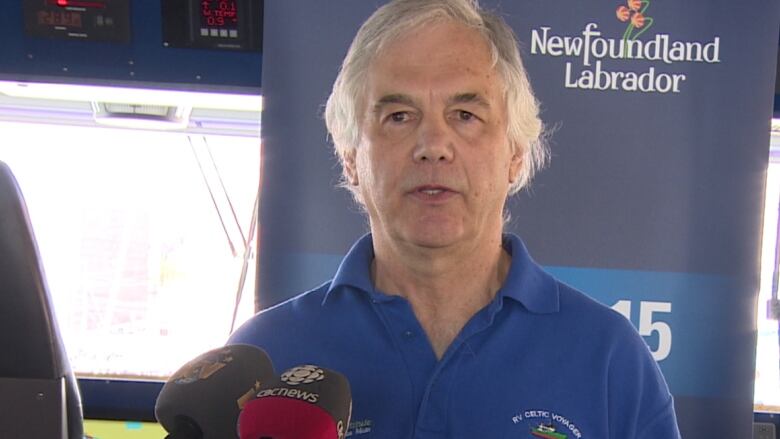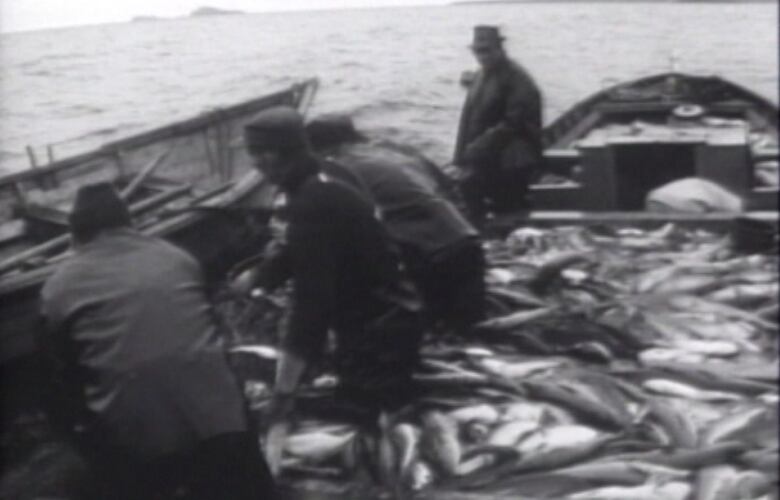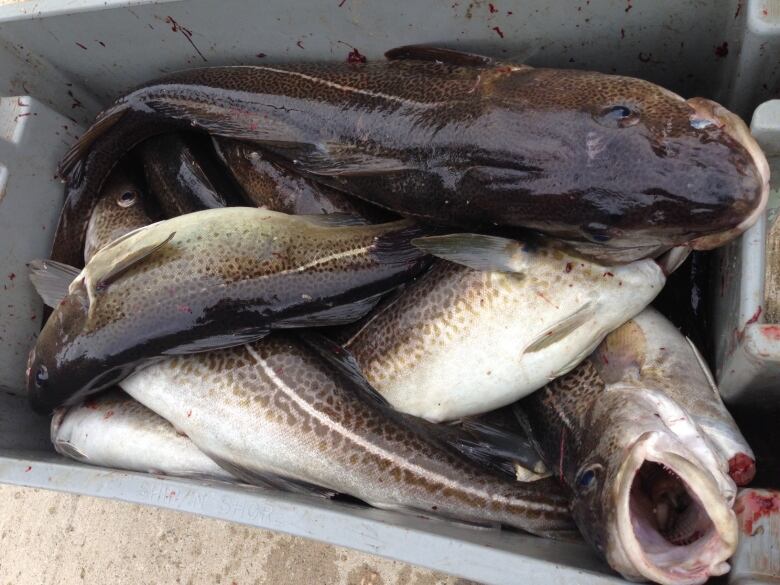Cod recovery 'quite spectacular,' but George Rose calls for caution
Scientist says too early to resume fishery, but says planning should get underway

A new study into the state of northern cod stocks off Newfoundland and Labrador reveals a dramatic recovery for a species that became commercially extinct in the 1990s.
But the lead researcher, well-known fisheries scientistGeorge Rose, says it's still far too early to ramp up fishing activity.

"We don't think that time is now. We need to really let thisstock gain traction," Rose said Tuesday,during an interview with CBC News.
The study, called Northern Cod Comeback, was published in the Canadian Journal of Fisheries and Aquatic SciencesTuesday, and was co-authored by Rose.
The journal describes the rebound as the most significant comeback of any fish stock worldwide, with a biomassthat has increased from tens of thousands of tonnes to more than 200,000 tonneswithin the last decade.
More than two decades of moratorium
That's encouraging news, following more than two decades of moratorium on northerncod, which was once among the largest cod stocks in the world and was an economic lifeline for Newfoundland and Labrador for hundreds of years.
Northern codis often regarded an example of decline and mismanagement, having collapsed from a peak biomass of several million tonnes.
It was common for commercial fishermen to harvest between 200,000 and 400,000 tonnes of groundfishevery year, but a complex series of factors, including overfishingand environmental changes, decimated the cod.
So what prompted the turnaround?
Rose said there are two factors that he knows for sure.
He said northern cod is a "cold water stock," and warming water temperatures over the last 10-plus years have benefited the species.
He added that the "spectacular" growth in cod coincides with the re-emergence of its key food source, capelin.
Smith Sound cod helped kickstartrebound
And Rose has another theory. He believes the large concentration of spawning cod in Smith Sound, Trinity Bay began to disperse around 2007 and "kickstarted" the rebuilding of cod in the so-called Bonavista corridor.
"Over the last seven or eight years productivity has increasedtremendously," Rosesaid.
He said it's hard to say whether the growth will continue, noting that things in nature rarely follow a straight line.
"We hope this growthcontinues, but as of now, we need to just follow this situationclosely in order to really know," he said.
Calls for bigger quotas
The research underscores what many fishermen have been saying in recent years, and adds to thegrowing chorus of voices calling for increased quotas.
But Rose wants acautious approach, with the biomass still far below what it was during the commercial heyday of the fishery.
"Without a doubt, maintaining low removals of this stock over the past decades has been essential to recovery," he told the journal.
"While the timing of a full recovery remains uncertain, continued protection from excessive fishing remains essential to achieving that outcome."

Rose said it's not too early to start thinking about how a future fishery will be prosecuted, while at the same time exercising "restraint and discipline" so as not to interrupt that he calls "cause for optimism."












_(720p).jpg)


 OFFICIAL HD MUSIC VIDEO.jpg)
.jpg)



























































































